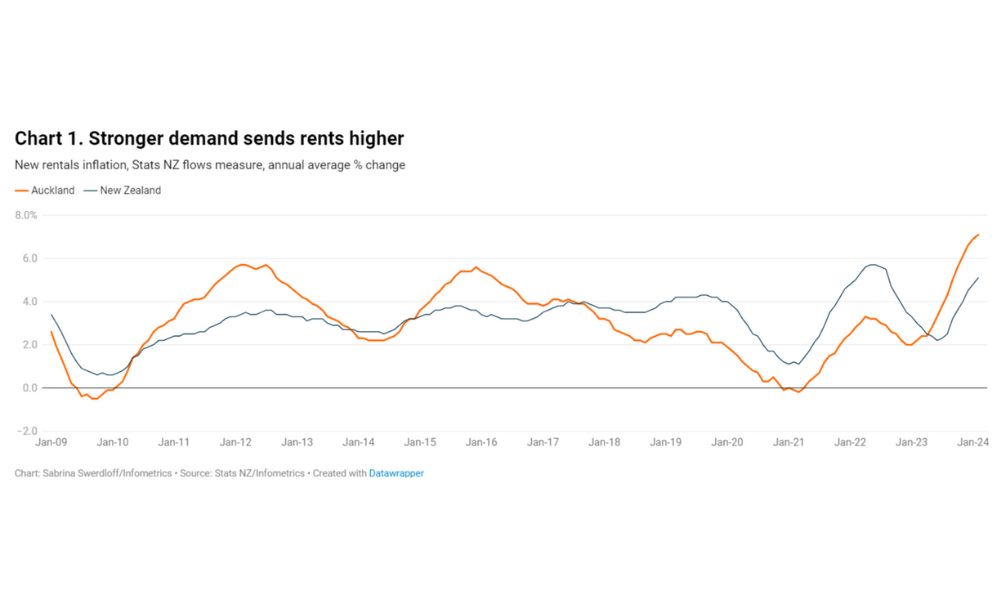What's driving rising rents?

As new rentals inflation hits a significant 5.1% per annum, New Zealand renters are caught in an escalating housing cost crisis, marking the fastest rate of increase since records began in 2008, excluding a mid-2022 spike, according to Infometrics.
Drivers behind rising rents
Sabrina Swerdloff (pictured above), economist at Infometrics, said the Treasury’s detailed analysis pointed to nominal wage inflation and the balance between housing supply and demand as the pivotal factors influencing rental prices over the past two decades.
“The cost of providing a rental doesn’t determine rents nearly as much as people think, evidenced by the fact that lower mortgage rates didn’t see rents fall in 2020-21,” Swerdloff said.
Migration’s impact on housing demand
A surge in net migration stands as a primary catalyst for the current uptick in rental costs, driving demand significantly ahead of supply.
Auckland, a primary destination for international immigrants, has witnessed the steepest rental inflation at 7.1% over the year to February, the highest for the city since 2008.

The broader implications
The influx of migration contributing to population growth exacerbates not just rental market strain but also puts a strain on infrastructure and social services, Swerdloff said.
Despite expectations for migration to decrease in 2024, the ongoing disparity between housing supply and demand threatens to further elevate rental expenses until substantial improvements are made.
To read the Infometrics report, click here.
See LinkedIn post here.
Get the hottest and freshest mortgage news delivered right into your inbox. Subscribe now to our FREE daily newsletter.



